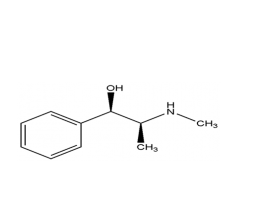
Absorption In a Healthy World
Over the last decade there has been a rapidly growing interest in the area of nutritional supplementation prompted to a great extent by large volumes of published medical and scientific research showing the proven health benefits of many nutrients.
More and more people are becoming aware of how difficult, or perhaps impossible, it is to meet all of their optimal nutritional requirements by diet alone. This has prompted them to turn to supplementation, either to fill the deficiencies left by their diet, or perhaps to gain a therapeutic effect for a health problem.
Whatever the reason, in order to get the greatest benefit from a supplement, it is important to ensure that the supplement will be used as efficiently as possible by the body. Not all supplements are created equal. There is often a considerable difference in the potential effectiveness of one calcium-to another, or one vitamin E to another, for example.
The ability to make use of a supplement depends on many things: the breakdown, or digestion of the supplement, how well it is absorbed, the simultaneous intake of antagonistic substances, and the manufacturing process which can increase or decrease the utilization of the supplement.
Digestion and Break Down
Logically, in order for a supplement to work, it must break down. Where it is supposed to be broken down depends on the type of supplement. With the vast majority of supplements, this is intended to occur primarily in the stomach, by the action of hydrochloric acid and pepsin content and undulation of the stomach. Accurate tests of a tablet’s ability to disintegrate provide a similar environment of enzymes plus undulation to mimic conditions in the stomach.
Tablets have been considered to be the least efficient of dosage forms to break down. This is true, but it does not generally hinder absorption provided the tablet is manufactured properly.
Tablets require greater digestive capability, but properly manufactured tablets will break down adequately in the vast majority of people, usually within 30 minutes. The exception to this is people who have low stomach enzyme activity, for whatever reason.
Women over 50 years of age and the elderly, in general, tend to have more difficulty digesting tablets. When tablets are compressed too tightly, for example when a company tries to make an ultra high potency supplement into a normal sized tablet, this can cause incomplete digestion, even in those with good digestion.
Timed-release tablets can be a problem, often due to their very tight compression and/or layers of protein coatings, especially in people with poor stomach acid production. Various types of binders and coatings may inhibit proper absorption as well. In general, cellulose fiber-type coatings or glazes may be much easier to break down.
Many people would understandably assume that if the tablet or capsule breaks down in the digestive tract, then the supplement would automatically be effective. One might assume that powders or gel caps are guaranteed to be effective as well. The truth is, that the proper breakdown of any dosage form is NO guarantee of efficacy.
This is primarily the case because efficacy of a supplement is dependent on the proper absorption of its active constituents. The complete utilization of a particular substance can mean many things and can involve many processes. What is required for this to take place depends entirely on the type of substance.
- liquids and Absorption
Your body absorbs liquid vitamins better than its pill counterparts do. In fact, the body absorbs approximately 98 percent of the vitamins and minerals contained in liquid form. However, the body only absorbs any
where from 3 to 20 percent of the vitamins in a vitamin pill. Moreover, liquid vitamins bypass digestive processing and go directly into the bloodstream within minutes.
- Significance of Liquids
Nutrients keep the body strong and healthy, but antioxidants play a role in the prevention of age-related diseases. Choosing a liquid vitamin over vitamin pills may help your body absorb nutrients — especially important antioxidants — better. The body needs a constant supply
of vitamin A, C and E, which are antioxidants that prevent the oxidation of cells. Cells oxidize when age, disease or illness strikes the body. You can prevent premature aging and some diseases by taking a daily multivitamin supplement.
- Example
When the body does not get the vital nutrients it needs, it turns to stored reserves in body’s organs. As an example, a lack of calcium intake will cause your body to get its calcium needs from the bones, where your body stores most of its calcium reserves. Some calcium remains in your blood and soft tissues, but when your body uses up those reserves, it must get calcium from your foods or vitamin supplements. Otherwise, your body turns to emergency reserves–calcium in the bones. Over time, if your body doesn’t replace those calcium reserves in the bones, it may lead to weak bones or a disease called osteoporosis. In the United States, more than 40 million people either have osteoporosis or are at high risk for the bone disease, according to the National Institutes of Health. A daily vitamin supplement may be able to prevent osteoporosis, among other preventable conditions.
- Conclusion
It seems logical that your body may absorb vitamins better in liquid rather than in pill form. Liquid vitamins are easy to take, even though they may leave a medicinal aftertaste in the mouth. Some people describe vitamins in pill form as “horse pills” because they are big and difficult to swallow, but this isn’t the only reason why you may want to take a liquid vitamin instead of a vitamin supplement in the form of a pill.
But here are some facts to leave you with when considering your next purchase of supplements.
Fact Pills
- Research suggests that the body absorbs only 10-20% of vitamins in solid/capsule form.
- Pills contain up to 80% fillers, binders, chelating agents, stabilizers (crospovidone) and film coatings.
- Vitamin capsules have powdered ingredients placed into pork-based gelatin or vegetable capsules with additives such as talc, binding agents, blue vitriol (insecticide) and other fillers, which leads to digestive distress.
- Many pill manufacturers use hazardous ingredients such as hydrogenated oils, polyvinyl alcohol (adhesive), dyes, overdoseable iron, synthetic Vitamin E (d-alpha tocopheryl) and hypromellose (used in eye drops).
- Many pill manufacturers double and triple the amount of certain vitamins that you ultimately pass through your system without absorption as a way to make you think you are getting a better product.
Liquids Fact
- Research shows that liquid vitamins have an absorption rate of up to 95%.
- Vitamins in liquid form bypass the digestive process and are absorbed directly into the bloodstream through the mucus membrane resulting in immediate results.
- Liquid formulas should not upset your stomach.
- Liquid multivitamins are easier to swallow, especially for children and seniors.
- Children with immature digestive systems can assimilate liquid vitamins easier and more effectively.
- Seniors with attenuated digestive enzymes can absorb liquid vitamins easier and more effectively.
The choice is yours decide.





